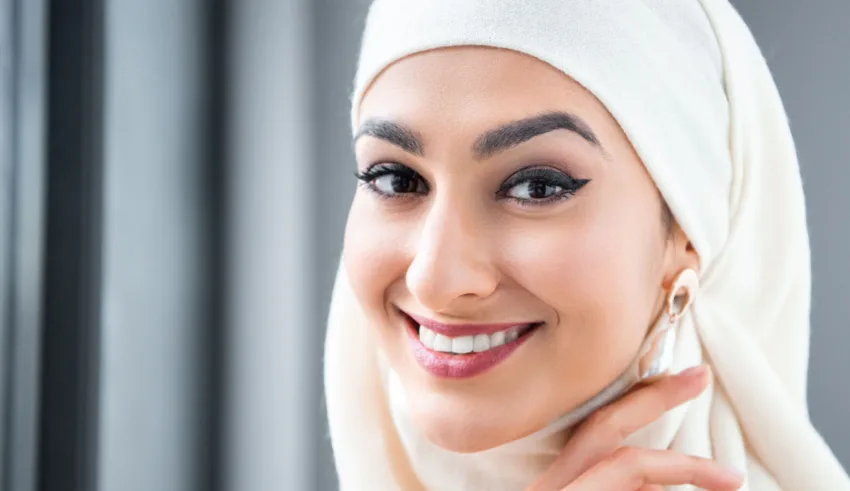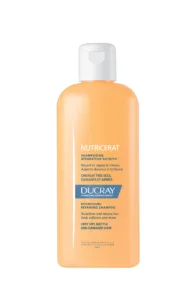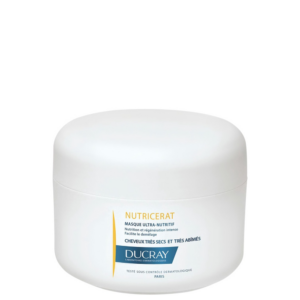
As the holy month of Ramadan approaches, the excitement of celebrating this month undoubtedly begins to rise. However, once the busy month begins, it can have a stressful impact on your general well-being. This often means that basic care, such as personal care, can sometimes be neglected, especially less demanding tasks like maintaining a good scalp care routine. But fear not. In this article from The Dermo Lab, we’d like to present several important tips for keeping your hair healthy and avoiding hair loss during Ramadan and during Eid al-Fitr celebration.
1- Maintain your body water level
Compensate for water loss during fasting hours with herbal teas, as these drinks preserve your fluid levels and refresh your body. Avoid sugary or caffeinated drinks, which cause dehydration and other problems such as migraines.
You can try coconut water if possible: it hydrates your body better than normal water and is rich in minerals and electrolytes. Most professional athletes use it as a natural alternative to compensate for lost ions.
It’s advisable to drink at least eight glasses of water a day. During Ramadan, you should drink the same amount after iftar. Not only does it promote hair growth, but it also softens your mane, and regular use is said to increase volume too!
2- Eat well and correctly
Eating a variety of vegetables and fruit, rich in essential vitamins and minerals, is crucial for promoting hair growth and strength. Incorporating milk and yogurt into your daily meals provides an extra boost of hair-boosting nutrients such as protein, calcium, and vitamin D. Try to consume at least one cup of milk or yogurt a day to nourish your hair from the inside out.
In addition, dates, a traditional fruit popular during Ramadan, have many benefits for hair and skin. Dates are rich in vitamins and minerals, including vitamin B, iron, and potassium, which contribute to healthy hair and a radiant complexion. By incorporating these nutritious foods into your Ramadan diet, you can nourish your hair and skin from the inside out, improving your overall well-being during this holy month of fasting and reflection.
3- Adopt an active lifestyle during Ramadan
When it’s hot and you start fasting during Ramadan, don’t think about going into couch potato mode. Most of you already have a sedentary lifestyle, and that’s never good. A healthy workout regime not only promotes good health, but also beautiful hair.
When you exercise, blood circulation increases. This allows more nutrients and oxygen to reach your scalp.
4- Take care of your hair
The hot temperatures, fasting, and high humidity of Middle Eastern countries are bad for your hair, so you need to give it extra care and attention to keep it in tip-top condition.
Many shampoo brands on the market contain sulfur derivatives. So it’s important to use sulfur-free cosmetics during Ramadan to preserve your hair and keep it moisturized.
Our pick:
Ducray Nutricerat Nourishing Repairing Shampoo
Formulated with a gentle cleansing base that leaves your hair soft and shiny.
Another tip for nourishing hair: apply a mask to damp hair after shampooing, to intensely nourish and deeply repair fragile, weakened hair.
Our pick:
Ducray Nutricerat Nutrition Mask
Infused with lipids and moisturizing waxes, this nourishing hair mask restores moisture and strengthens the hair fiber.
5- Avoid heat and sweat for a healthier scalp
In the region, fluctuations in heat and cold due to exposure to air conditioning and then extreme outdoor heat can wreak havoc on your skin’s nutrition levels. Skin can begin to flake as temperature levels fluctuate with daily life. Skin cells begin to flake and the threatening symptoms of dandruff appear.
6- Sleep well and relax
A person can’t stand a single day without getting enough sleep, and during Ramadan, most people prefer to stay up late, which explains why they suffer from many health problems such as brittleness and hair loss, as lack of sleep leads to an imbalance in the hormones responsible for hair growth, and insomnia. The stress resulting from insomnia causes an increase in the secretion of oils that negatively affect hair growth, so sleep well during Ramadan for at least 8 hours a day, as this will help activate the body’s cells and improve the production of collagen needed in the hair.
7- Massage your hair
All parts of the body need massaging, right down to the hair, to stimulate blood circulation and strengthen hair follicles and roots. The right bathing method can be a healthy hair massage, rubbing the hair and scalp in a calm, circular way, without hurting or falling out, using products suited to your hair type and free from harmful substances.
8- Comb your hair
Combing several times a day promotes hair growth, strengthens hair follicles, and helps stimulate blood circulation. It also helps eliminate hair problems such as tangles and knots that form due to poor combing. It also reduces irritation and roughness so that your hair glides like silk over your shoulders all day long.
9 – Avoid prolonged exposure to the sun
The sun’s rays are beneficial and healthy for the scalp because of their important role in producing the vitamin D needed for hair growth and reducing the symptoms of hair loss, but daily exposure to the sun during Ramadan can be harmful to hair, especially in summer. That’s why it’s advisable to stay away from it as much as possible and replace it with healthy foods, plenty of water and some sporting activity, in addition to adopting natural drinks and avoiding stimulants to maintain hair hydration and vitality.
10- Take vitamins
During Ramadan, we need to eat a healthy, balanced diet to strengthen our bodies, especially our hair. However, the body may also need additional nutrients that provide essential vitamins and minerals that help hair growth and reduce hair loss. Not all organisms can absorb food and benefit from it. You can therefore replace them with a nutritional supplement that will provide you with all these elements.
11- Use bath oil
Hair always needs care and attention, even if your health system is healthy and integrated, especially during Ramadan and when your hair is exposed to damage and dehydration. It is therefore recommended to use natural oils for hair care and treatment, doing an oil bath once or twice a week depending on your hair type and the problems you suffer from. Many natural oils are useful for hair.
These are the top tips for keeping your hair and body healthy during Ramadan. Finally, The Dermo Lab wishes you a blessed Ramadan and an accepted fast.










